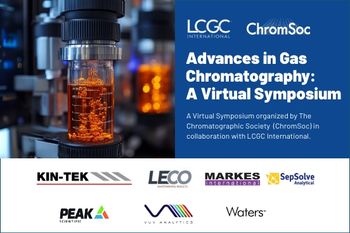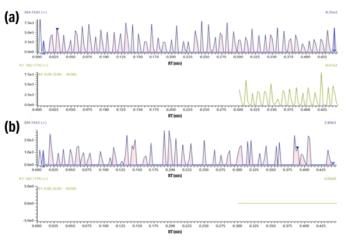
Current Challenges and New Analytical Techniques in Doping Detection
This Tuesday afternoon session will be presided over by Janusz Pawliszyn of the University of Waterloo.
Session 1160, Room S402b, 1:30 p.m.
This Tuesday afternoon session will be presided over by Janusz Pawliszyn of the University of Waterloo.
Daniel W. Armstrong of the University of Texas at Arlington (and a member of LCGC’s Editorial Advisory Board) will give the first presentation in the session, “Ultrasensitive and Chiral Analysis of Performance Enhancing Drugs (PEDs): Stimulants and Steroids.” Armstrong will discuss two techniques for PED analysis, chiral analysis of stimulants and paired ion electrospray ionization (PIESI) mass spectrometry for the analysis of steroid metabolites and other drugs of abuse in urine.
Next, Ezel Boyaci of the University of Waterloo will present a talk titled “Introduction of Solid Phase Microextraction as a Powerful Tool for High-Throughput Sample Preparation in Laboratory Analysis of Prohibited Substances.” His presentation will discuss the suitability of using solid-phase microextraction (SPME) in doping analysis as an alternative sample preparation method for liquid chromatography–mass spectrometry.
The next presentation, to be given by Vinod Nair of the Sports Medicine Research and Testing Laboratory, is titled “Current State of Anti-Doping Analysis –Techniques, Trends and Challenges.” This talk will provide a brief overview on the development of doping practices and the testing procedures and instrumentation used to detect them.
The final presentation in the session, “Direct Immersion Solid-Phase Microextraction as Bioanalytical Tool for Analysis of Human Saliva,” will be given by Vincent Bessonneau of the University of Waterloo. Bessoneau will discuss new in vivo SPE sampling of saliva as an approach for reliable and accurate determination of doping substances.
Newsletter
Join the global community of analytical scientists who trust LCGC for insights on the latest techniques, trends, and expert solutions in chromatography.




